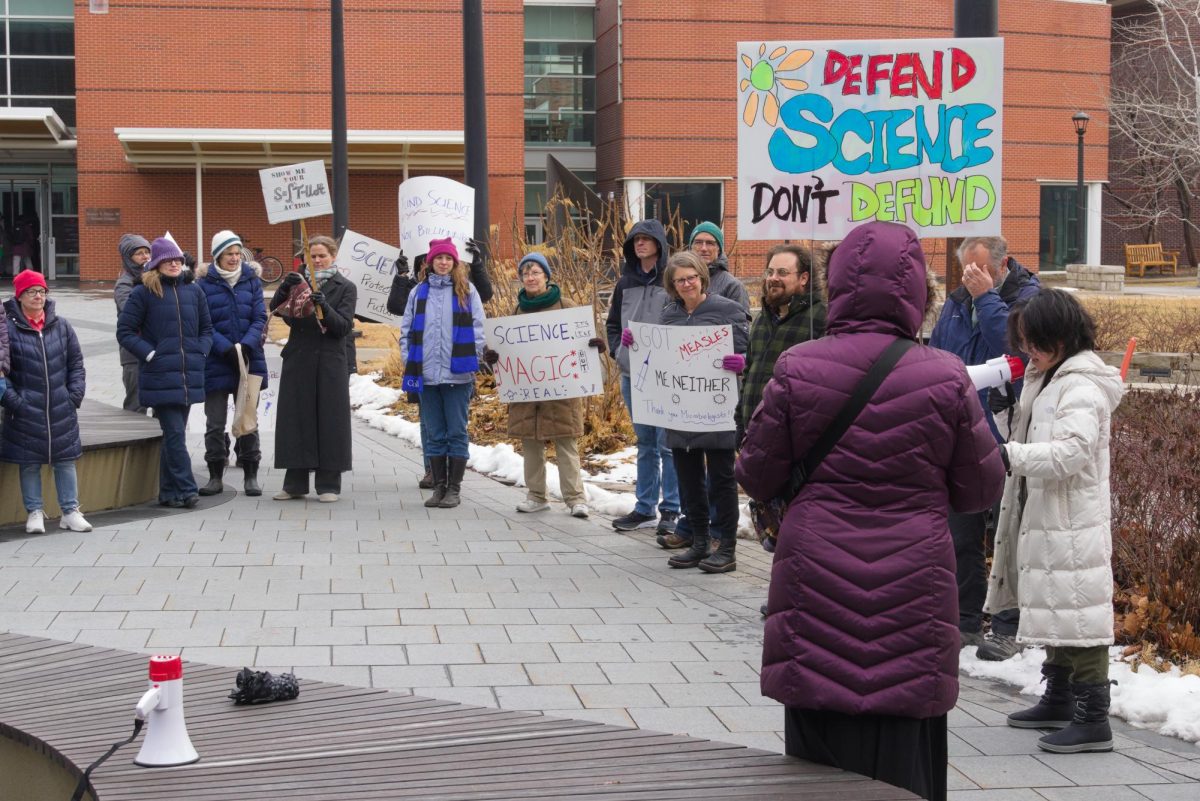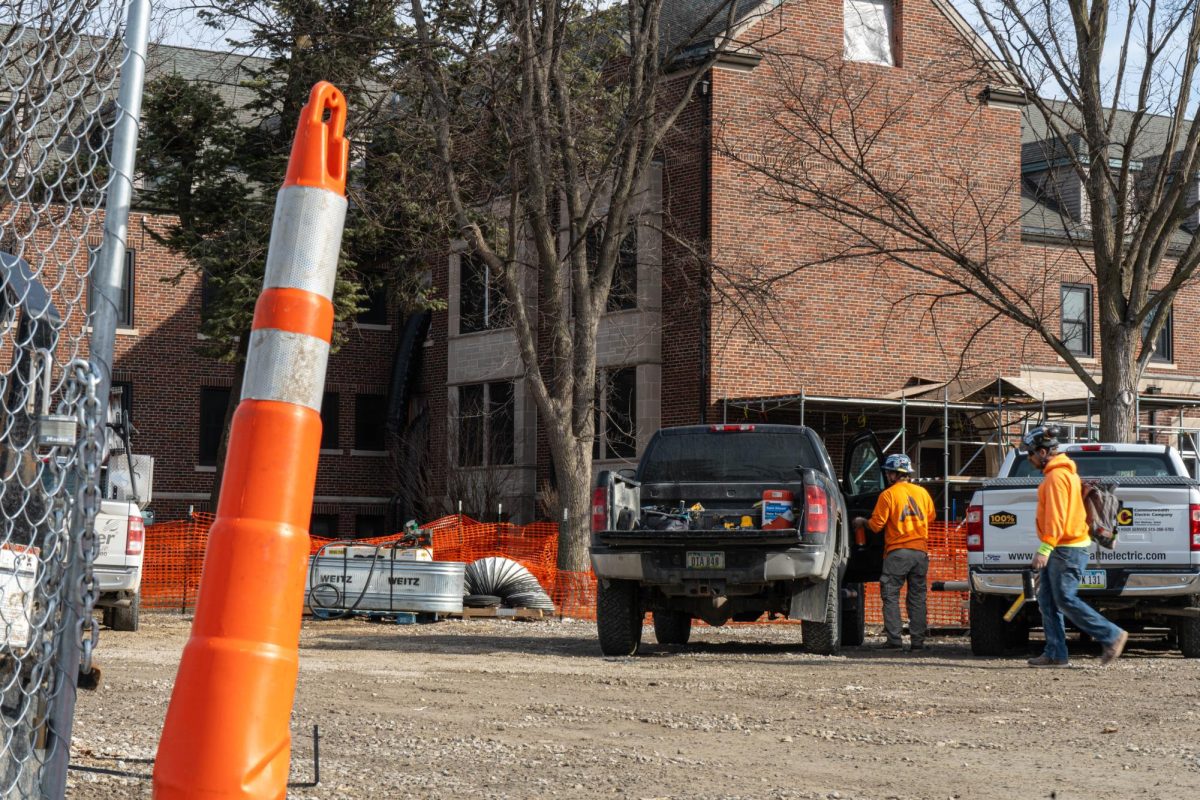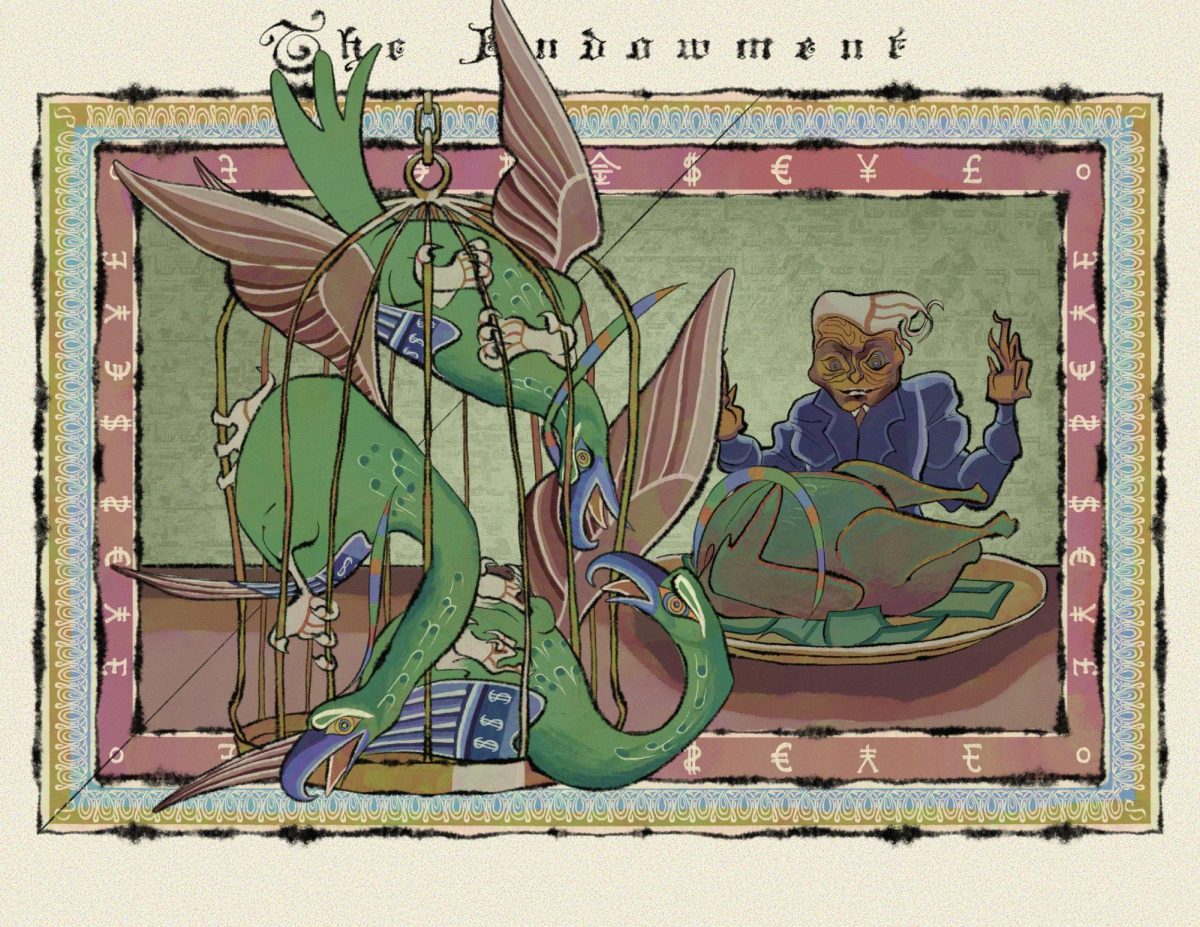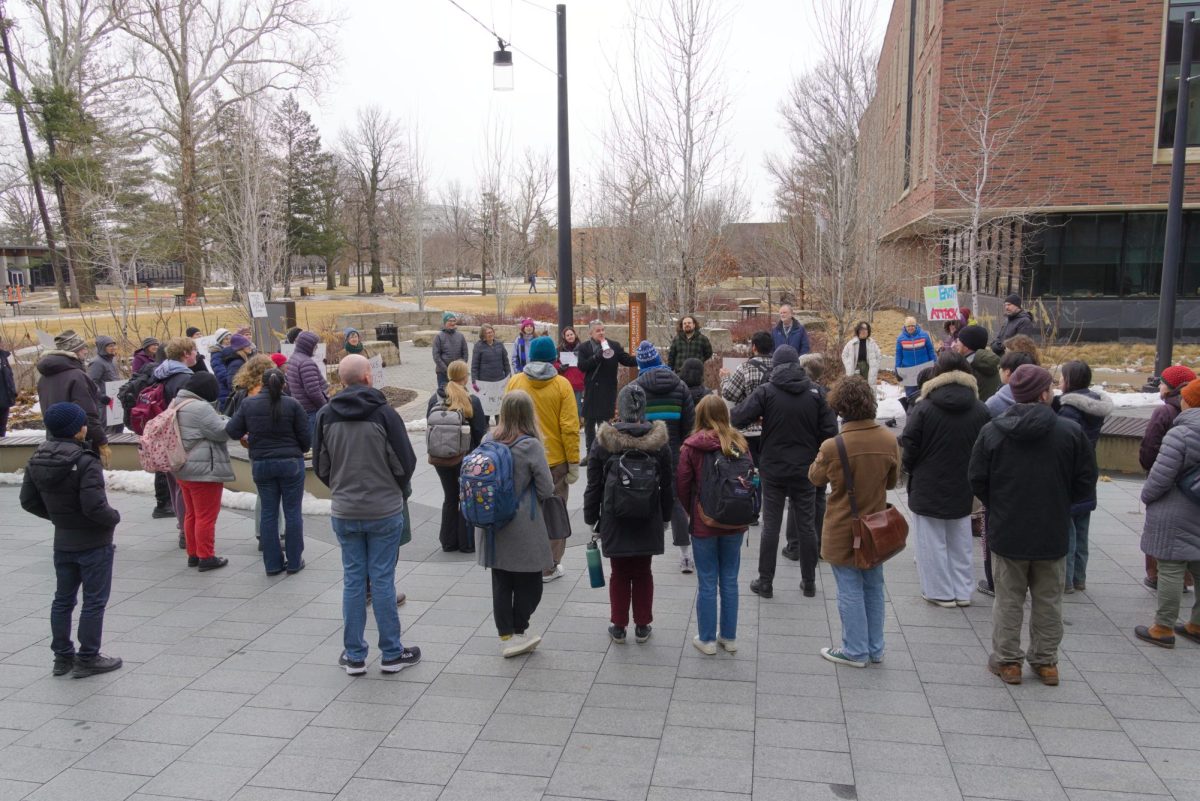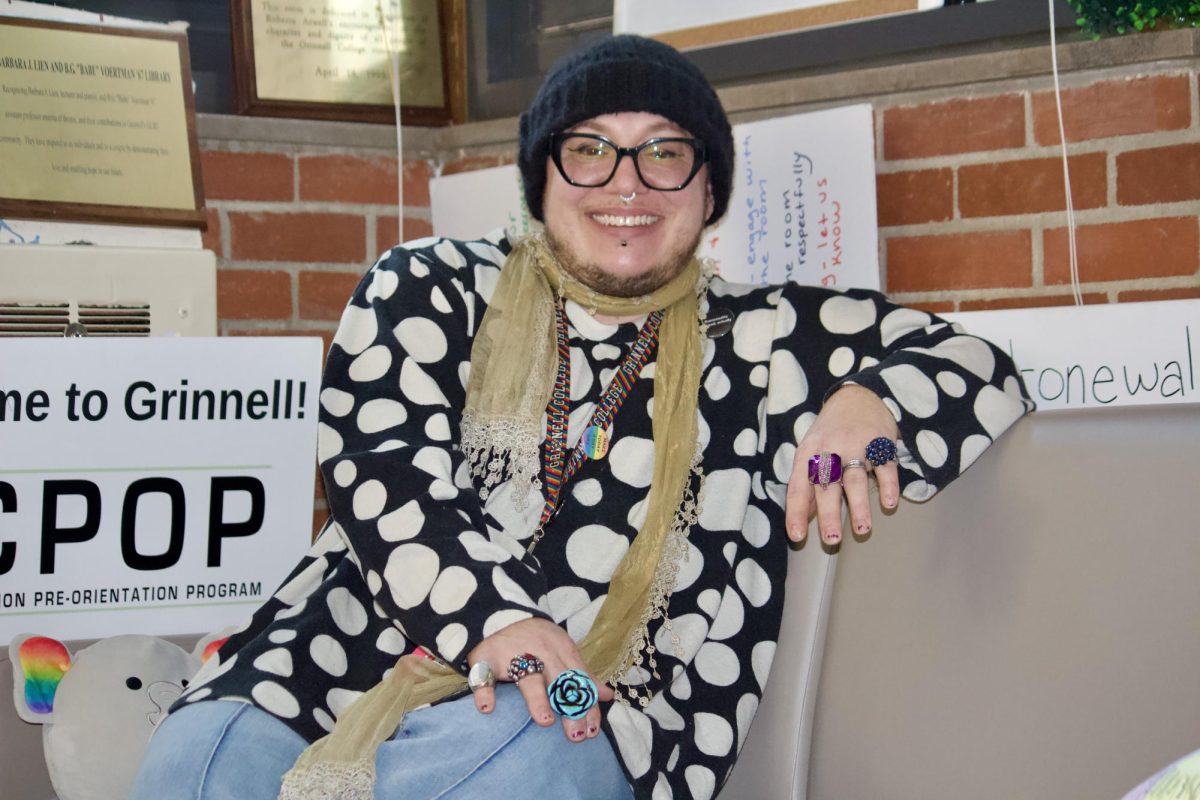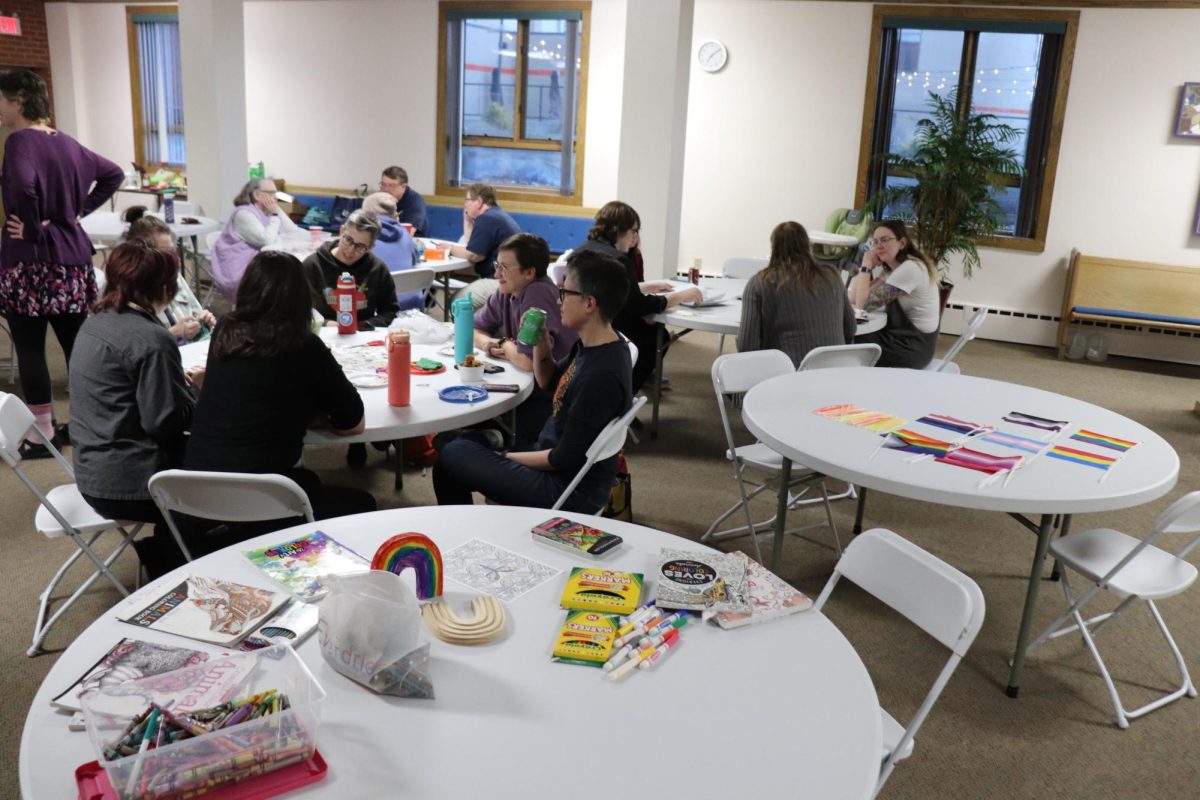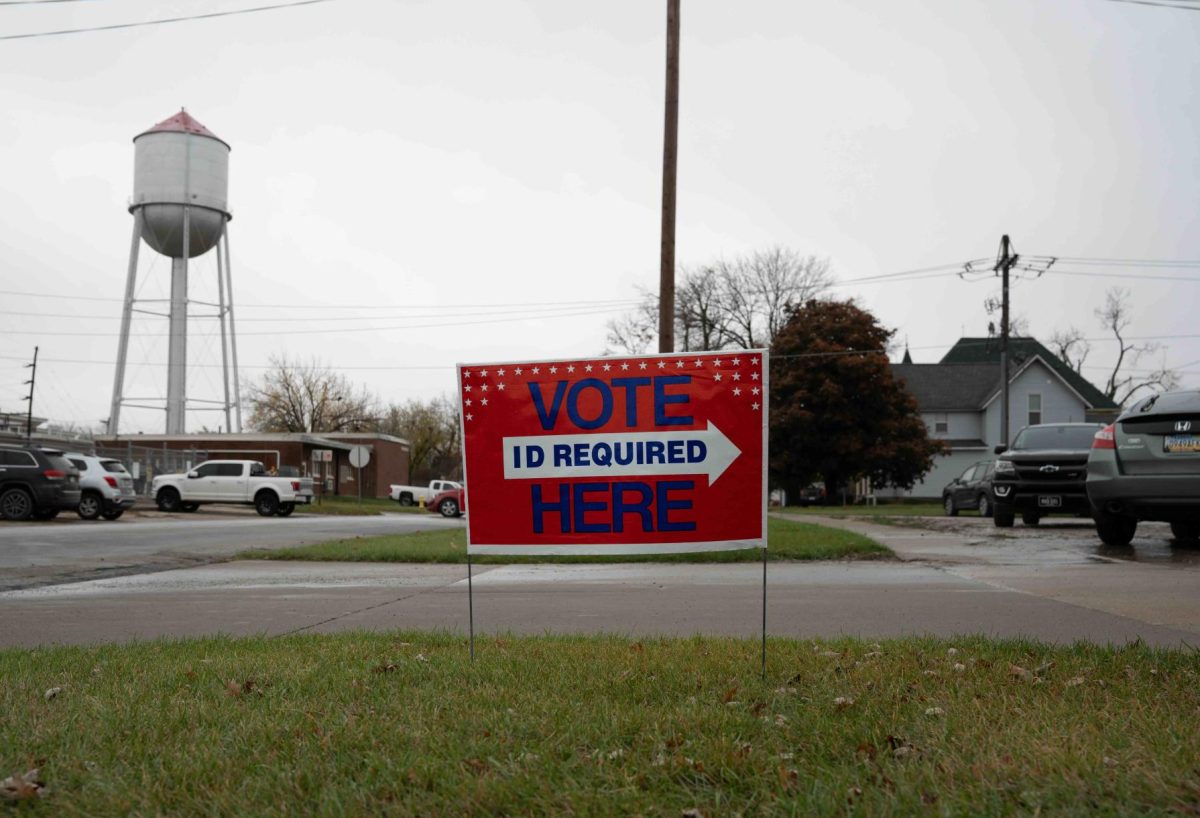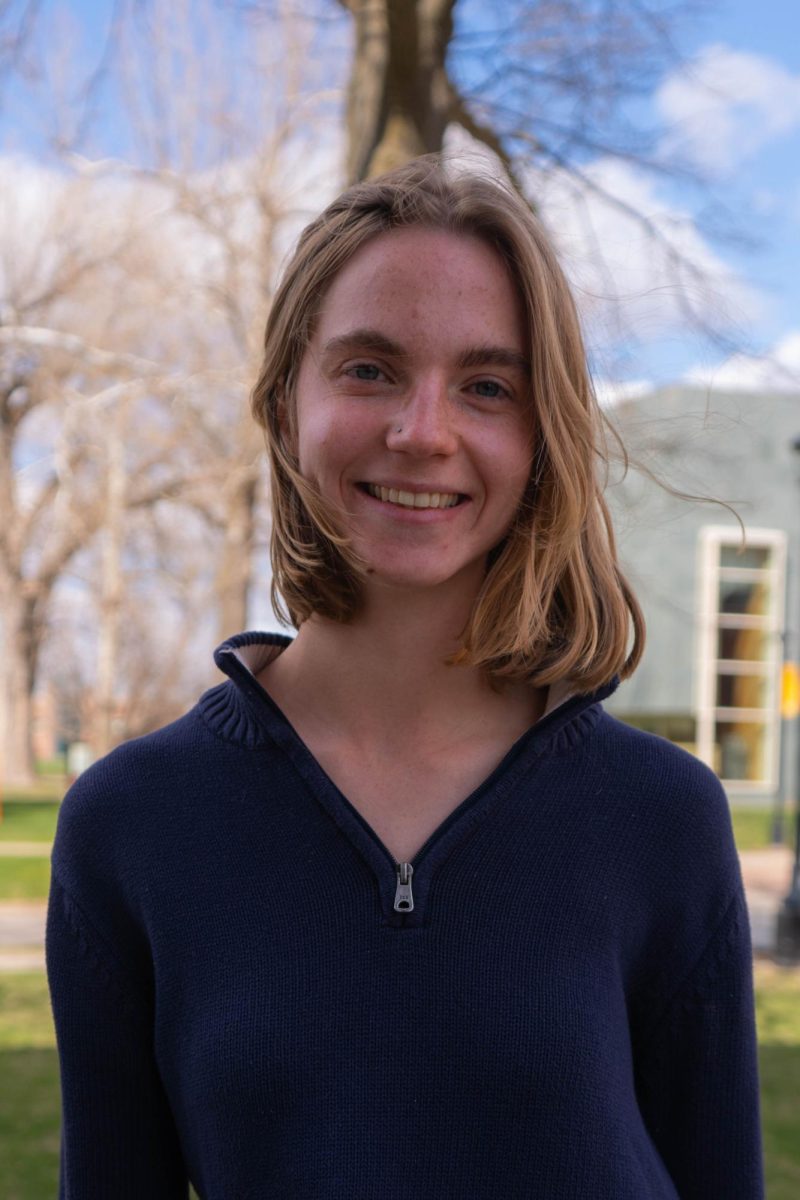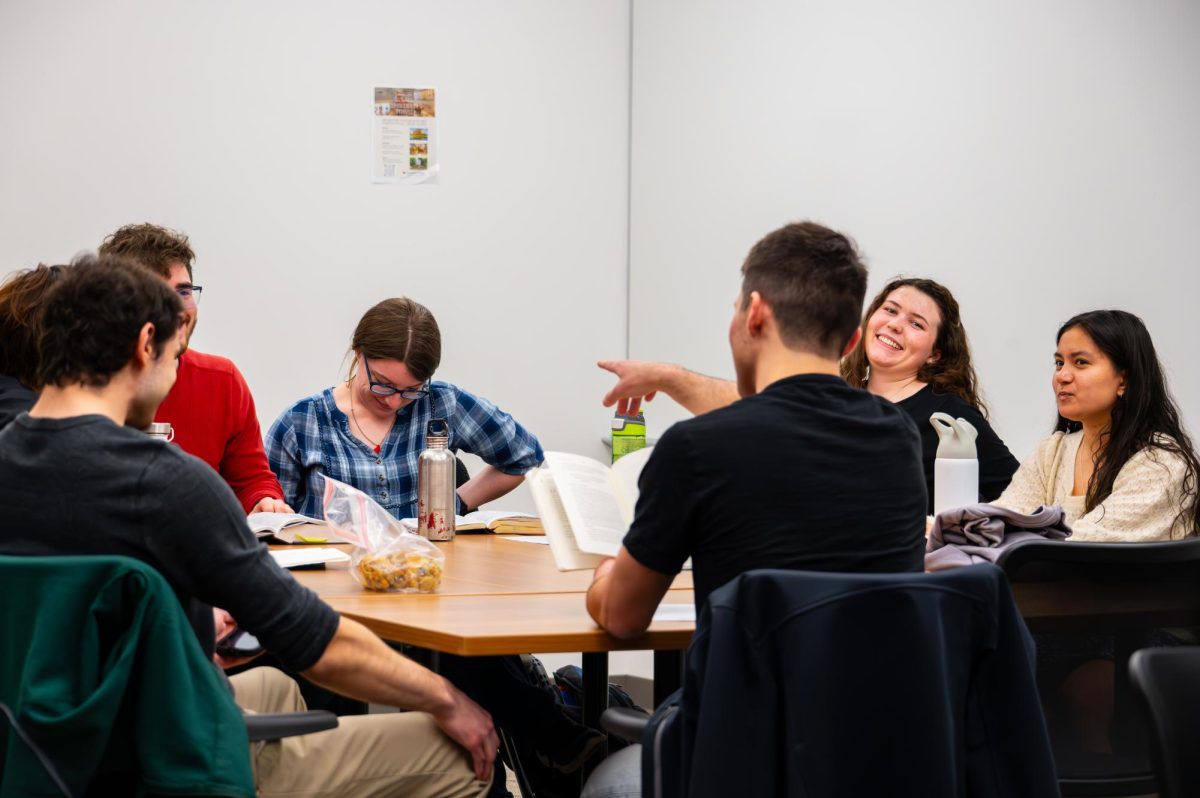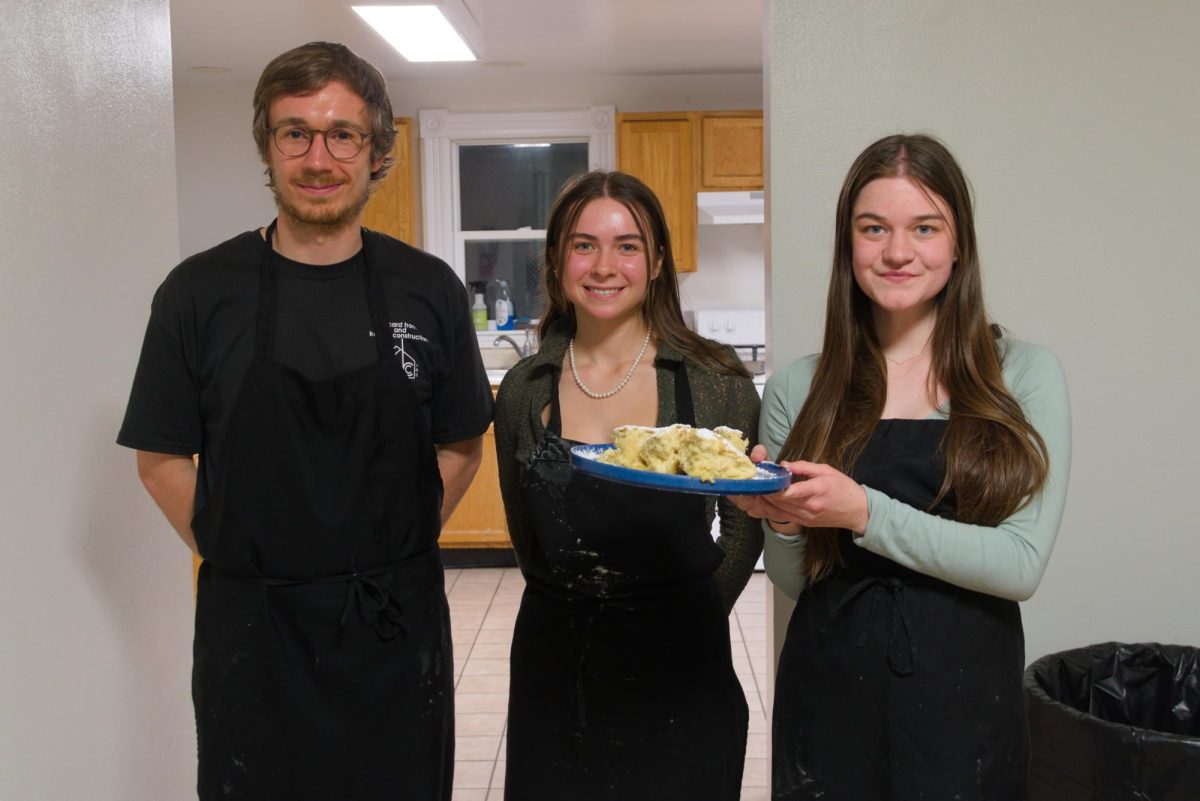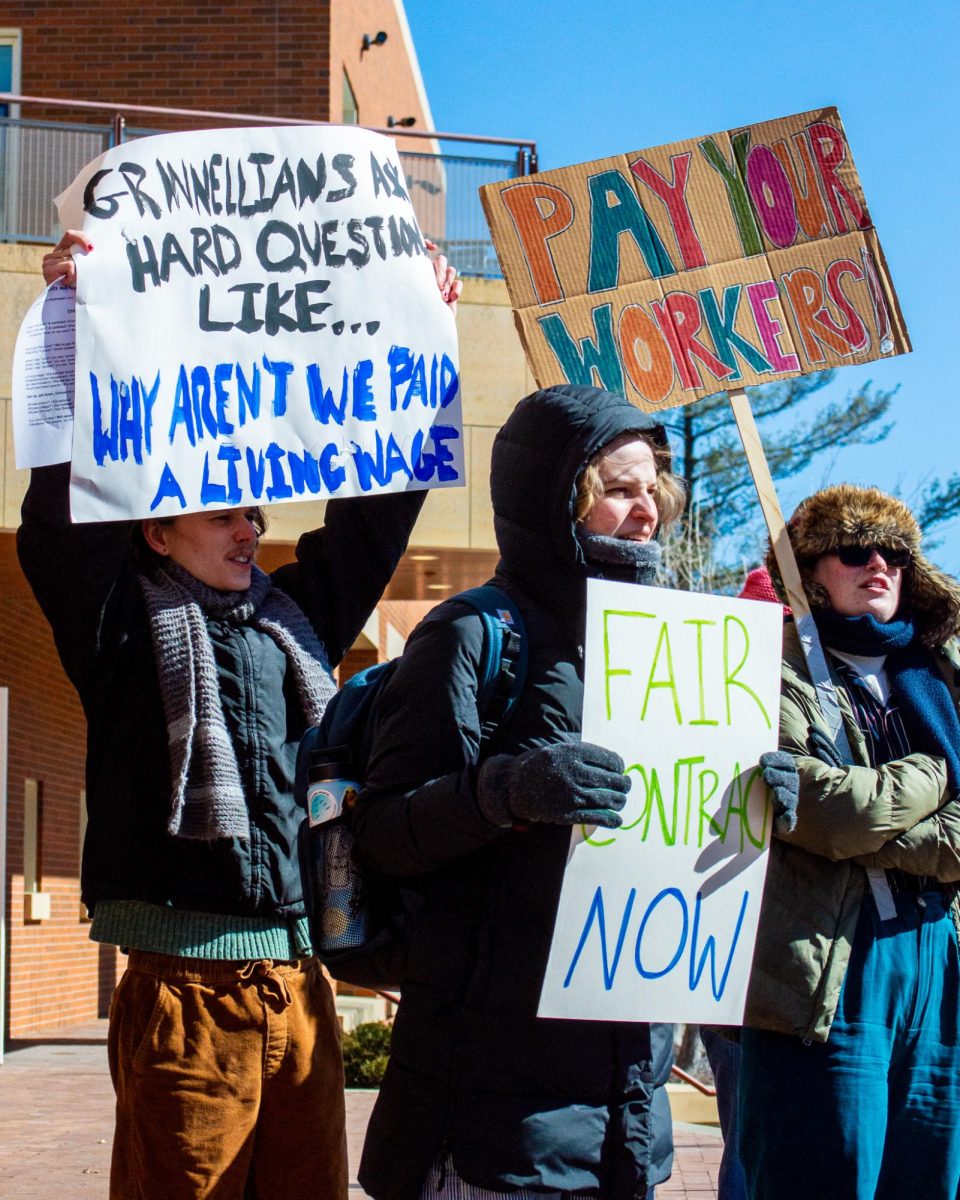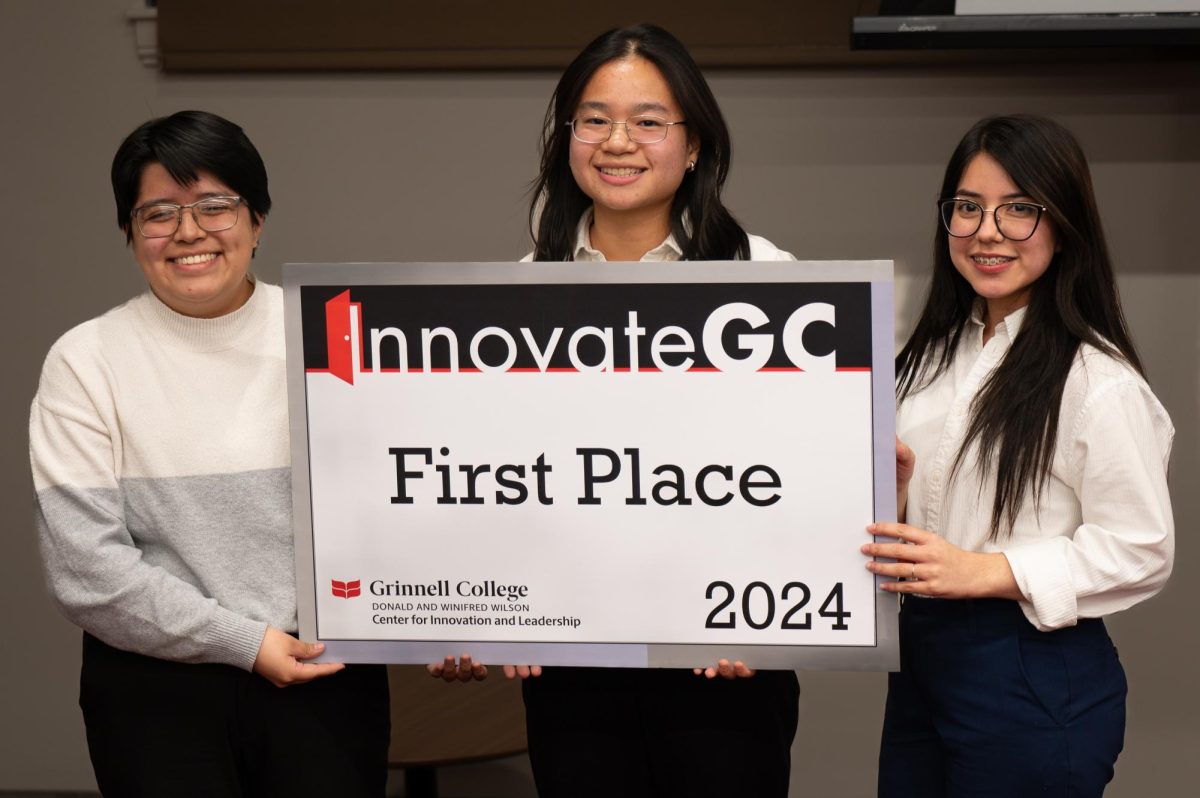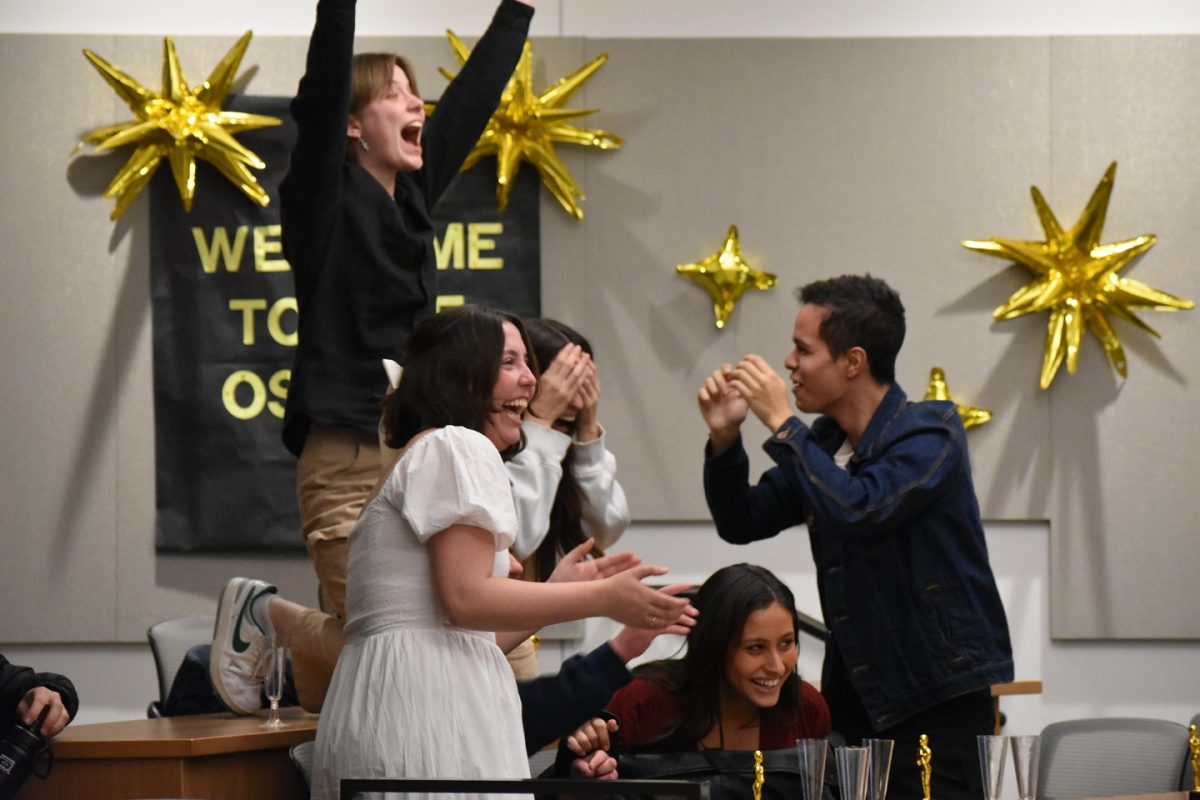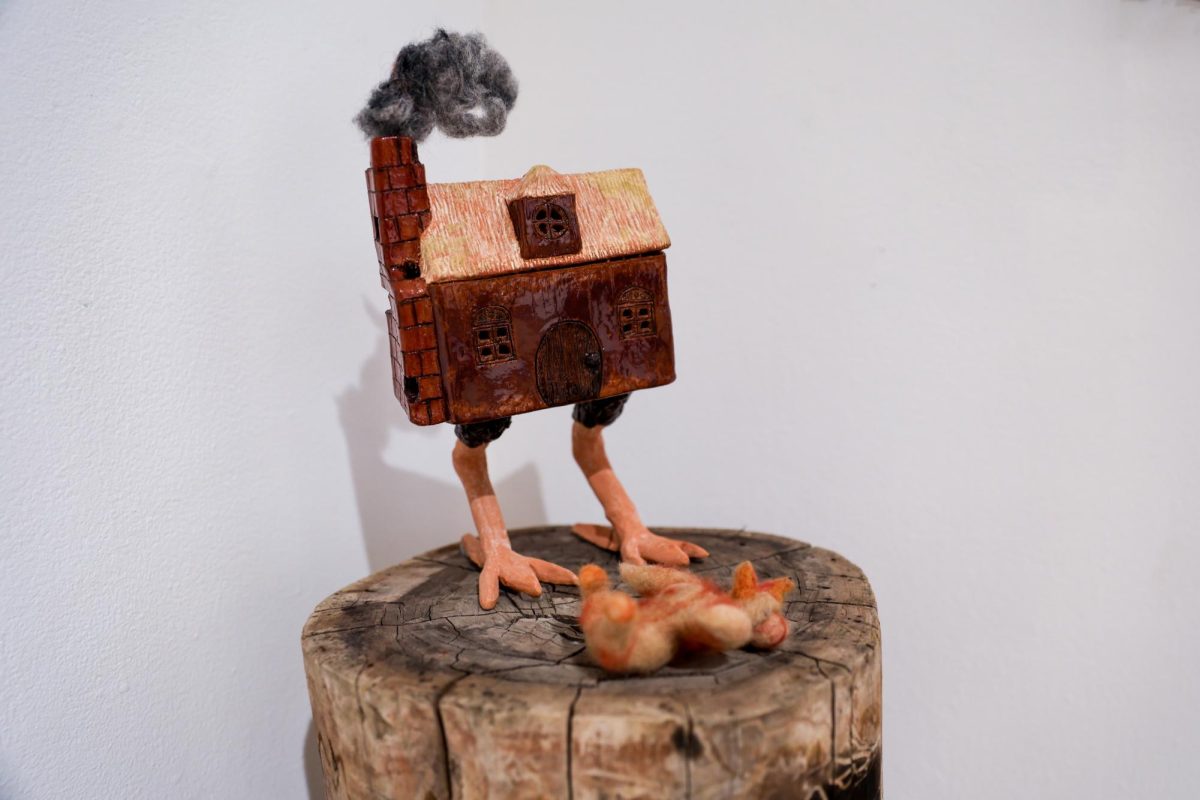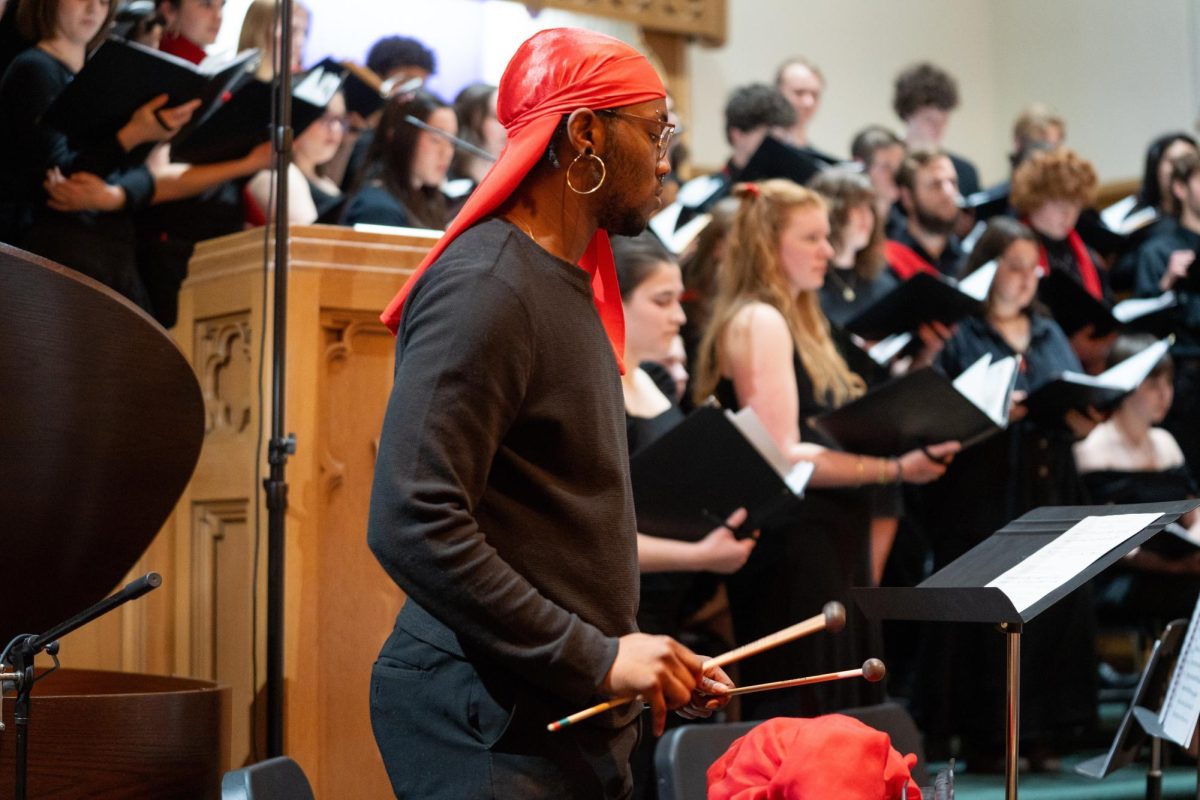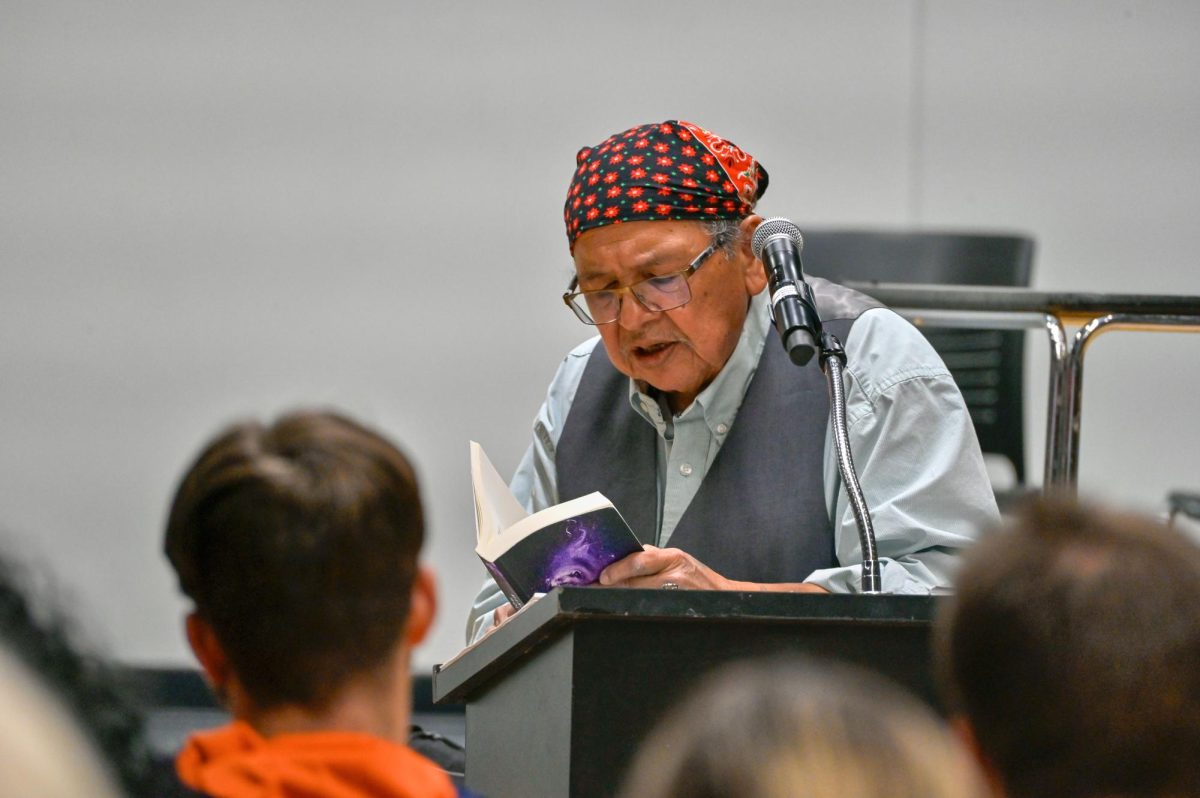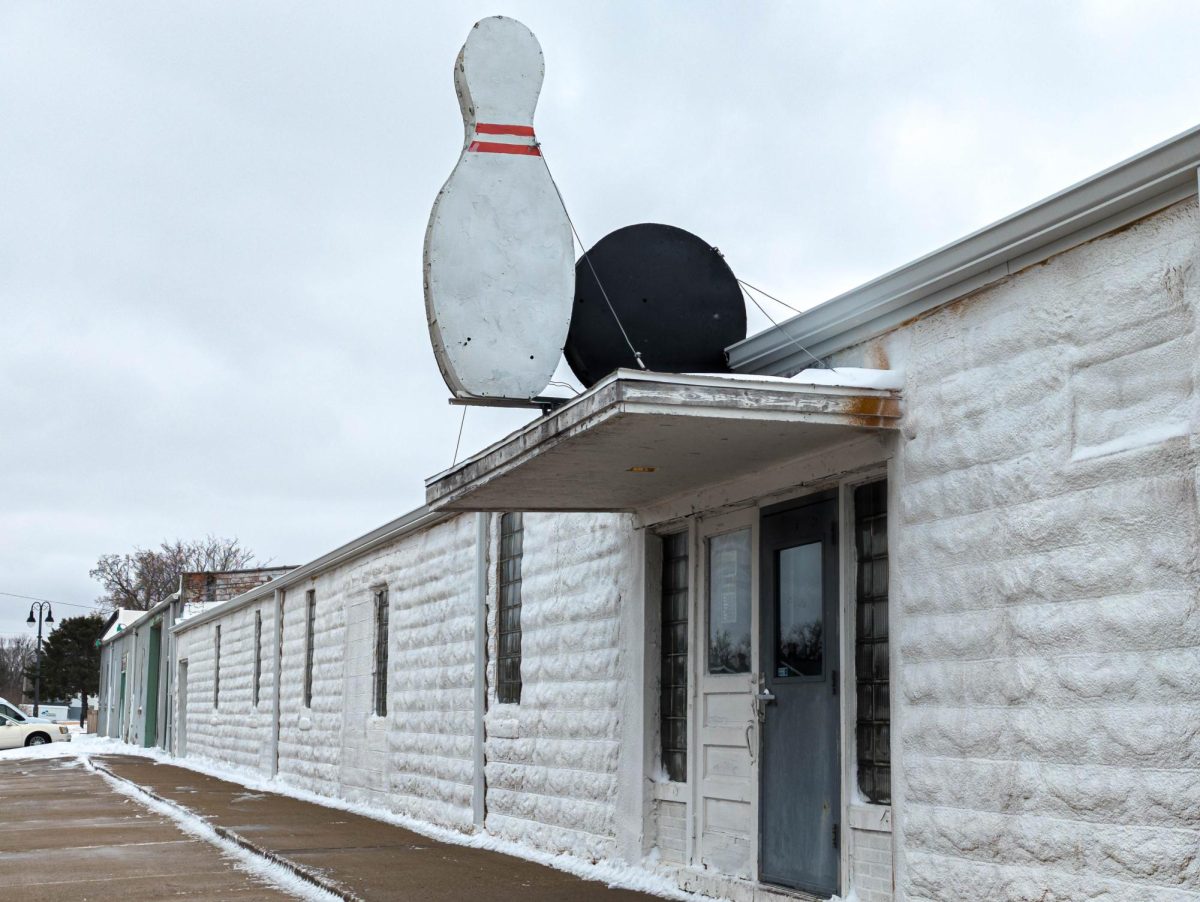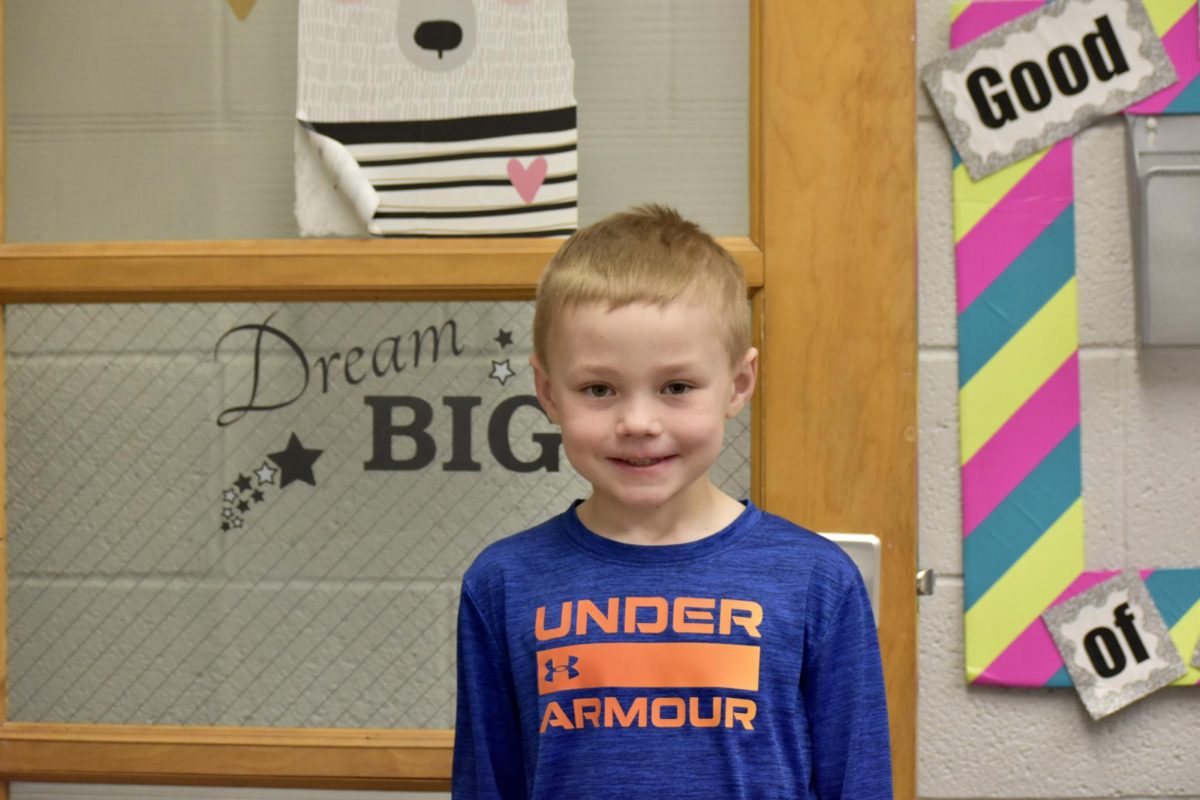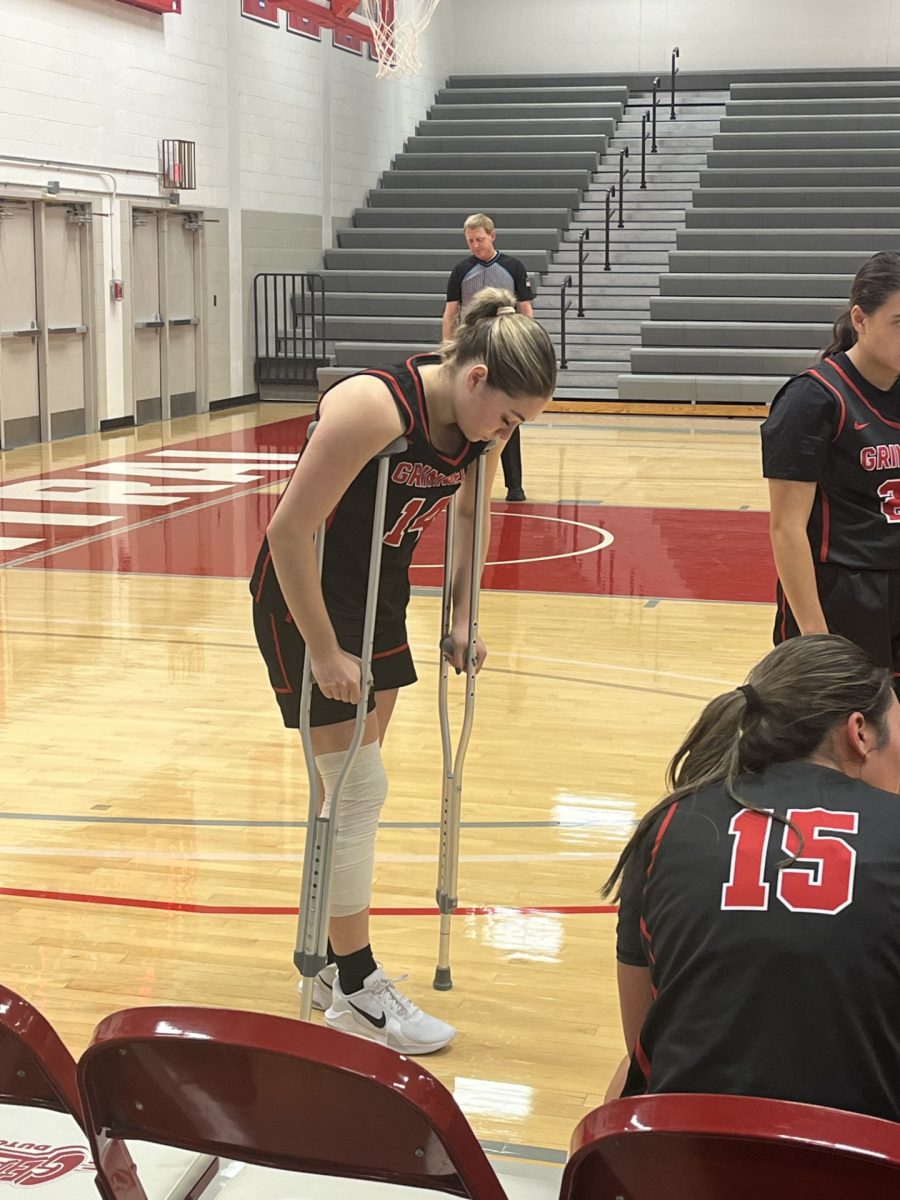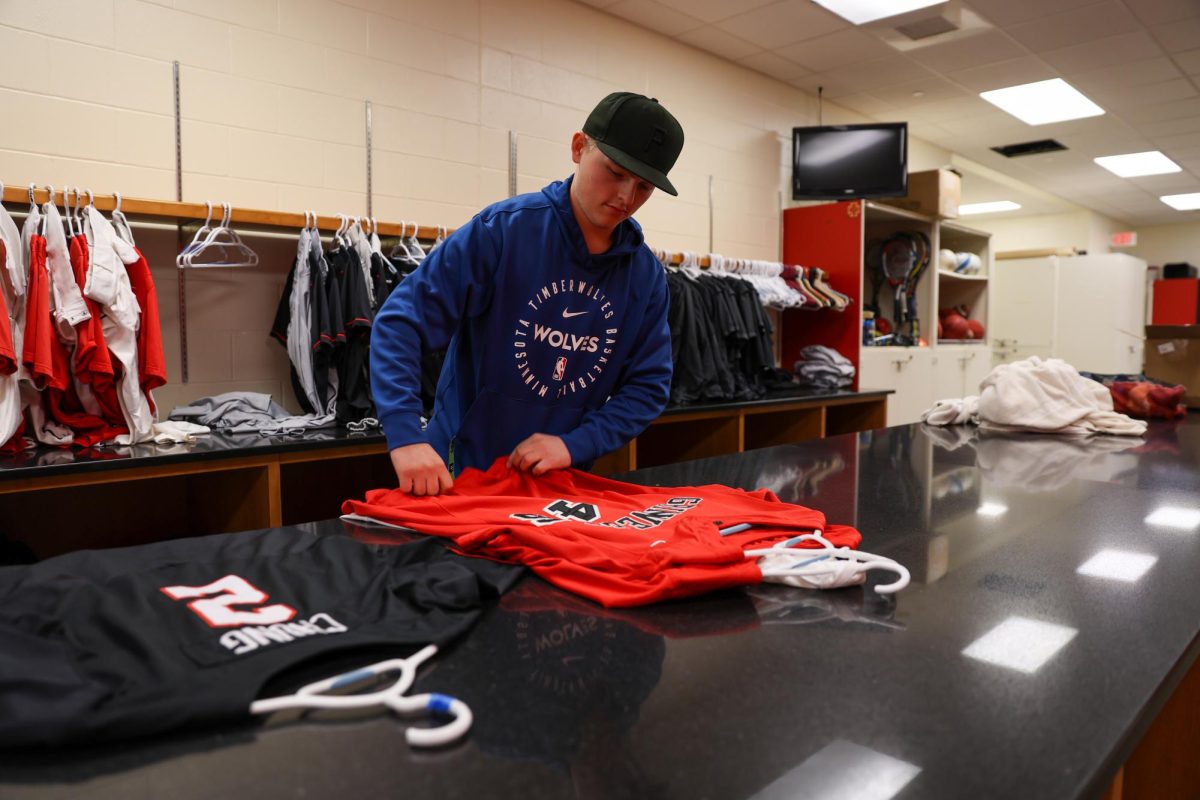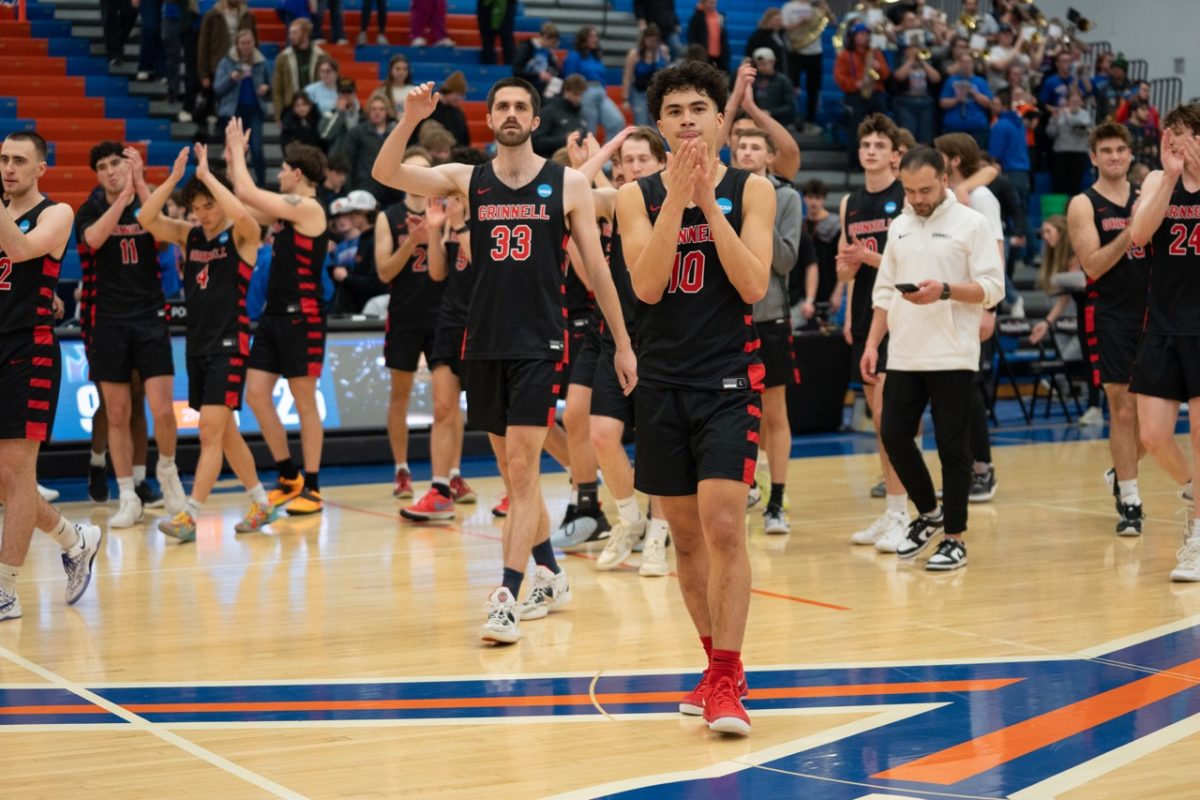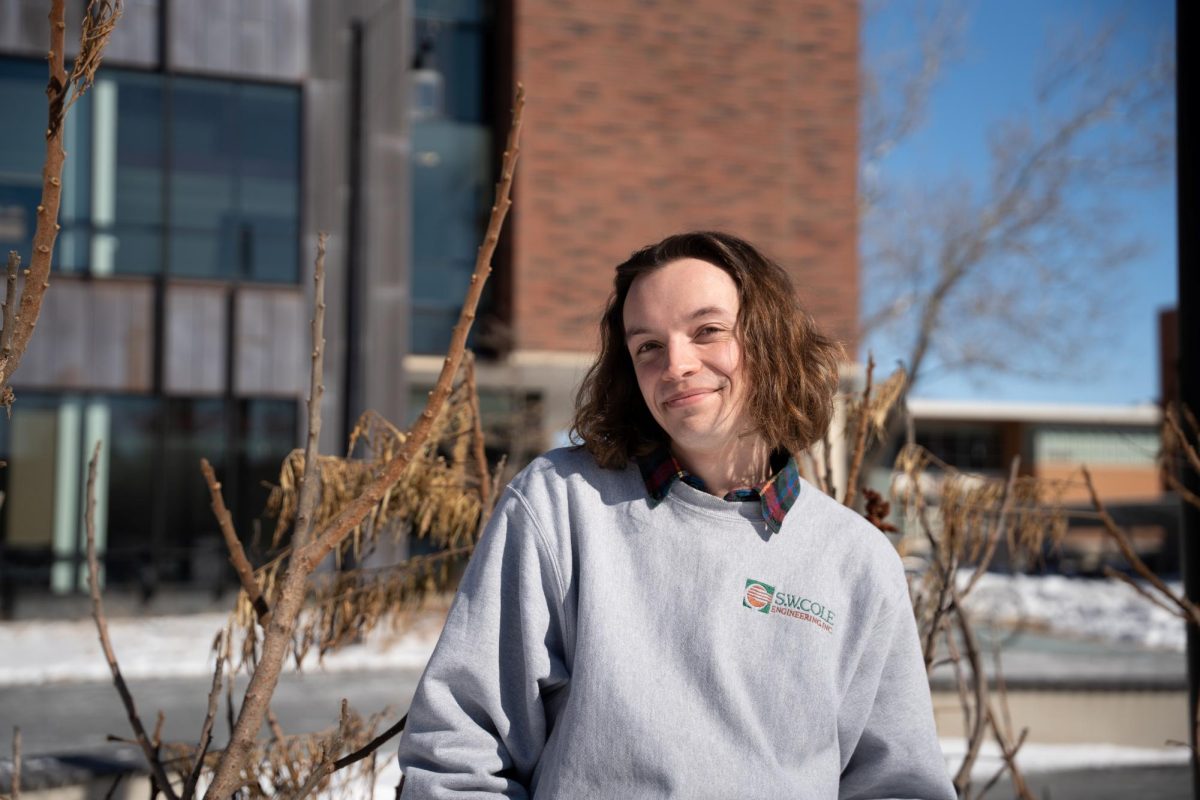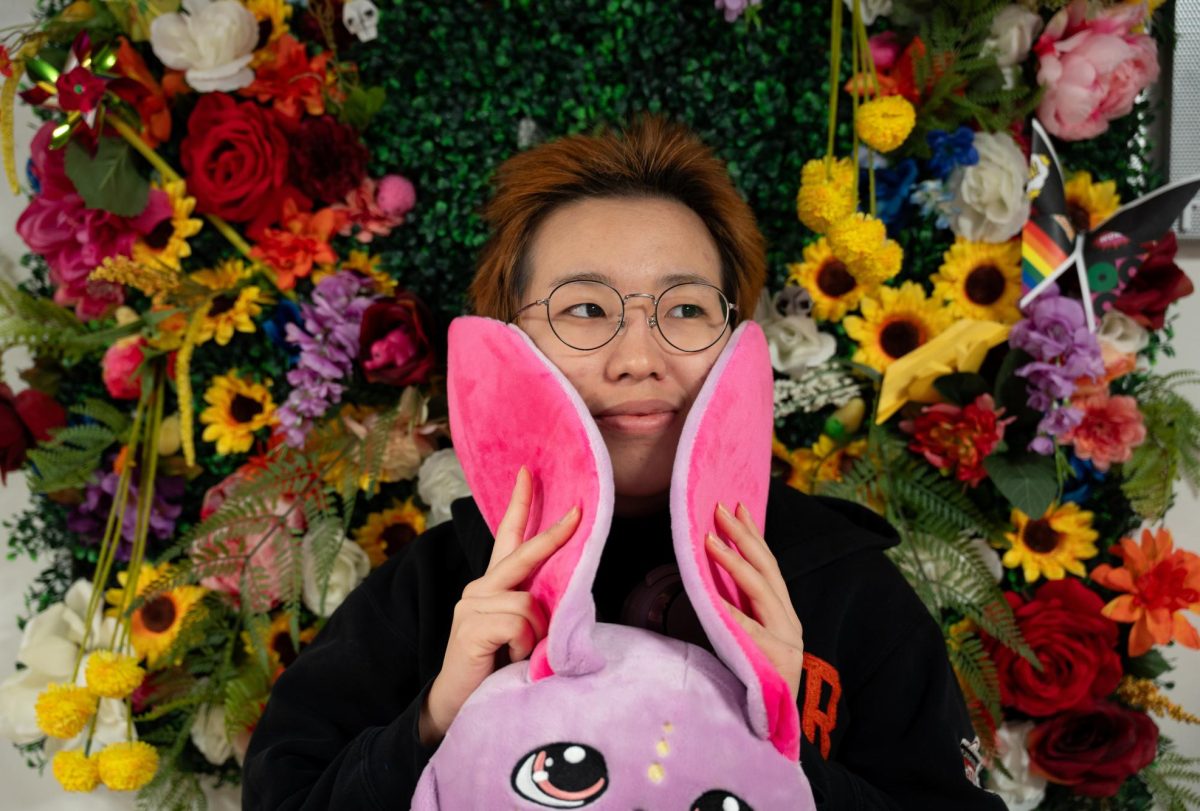By Solomon Miller
The largest sign outside the dining hall in the JRC reads, “We belong here.”
Students wrote this message in response to a public attack on the Latino/a community at Grinnell. Campaign signs for Graciela Guzman ’11, a Latina candidate for SGA Vice President of Student Affairs (VPSA), were covered over by hate speech, including the racial slur “wetback, go back.”
Guzman discovered the defaced signs on Friday night, according to various first-hand sources. She and her friends reported the incident to security as a potential hate crime. They met with Michael Hunt, the RLC on duty, and John Booth of Security to decide what course of action to take.
Guzman wants to emphasize that she is not the only target of the hate speech.
“That it happened to me is just coincidence,” Guzman said. “Had it not been on a poster, it would have been said, it would have been written somewhere else, it would have been a matter of time.”
“It’s a wake up call,” Hunt said, “Sometimes we can get comfortable, especially here at Grinnell… forgetting there are people who have a hard time because this doesn’t feel like a community for them.”
Lizeth Gutierrez ’12 was with Guzman soon after she discovered the hate speech. Her first reaction was to feel rejected.
“So you don’t want me here? You don’t want me, my ideas, what I represent in this campus?” Gutierrez said.
Guiterrez encouraged Guzman to tell her story, and to help the campus move forward.
“I’m going to let you cry today, but tomorrow you can’t cry, because we’re not weak,” Guiterriez said she told Graciela the day after the vandalism was found. “We’re going to show these people who believe we don’t belong here how much we are a part of this campus.”
Hunt, Booth and other relevant administrators worked with Guzman to determine how she wanted them to respond, as described by The Hate Crime/Bias-Motivated Incident Response Protocol put in place earlier this year.
Some campaign posters of other candidates were found defaced, but without the same racist connotations. They were not determined bias-motivated incidents, and as such were not considered in the same terms.
Guzman worked with Elena Bernal ’94, Vice President of Diversity and Achievement, to draft the all-campus e-mail sent out Tuesday Morning. The e-mail stated that posters of a VPSA candidate had been vandalized with anti-Latina slurs and that the act was officially recognized as a bias-motivated incident. It has not yet gone through the legal procedures that would identify it as a hate crime, according to Bernal.
There will be an open forum for members of the Grinnell community to come together and share their feelings and reactions to the incident next Thursday, March 11, at 4:15 in JRC 101. Guzman thinks this is only the beginning of what needs to be done.
“In order to really see any marked change on this campus, there needs to be dialogue across organizations that traditionally don’t have this dialogue,” she said.
Guzman identified classrooms as a place where minority students often feel uncomfortable because of unspoken biases and a lack of open conversation.
“There’s majors that I’ve chosen not to take, courses that I’ve elected not to take in a semester because it’s risky. You don’t feel safe. You don’t feel comfortable,” she said.
Hunt hopes that this open act of racism will start discussions about otherwise unmentioned, but not unnoticed, problems.
“There are students here who can’t be themselves in the classroom, whose stories aren’t heard, even in social settings, as well as in the academy,” Hunt said, “It’s so easy for us to ignore that. But here, this brings it to our face.”
Guadalupe Rubio ’11, a friend of Guzman, feels that such a public incident can open the door for a public response.
“I’m more empowered to know that we have support,” Rubio said. “To know that people who are not personally effected by this are standing with us.”
Still, a statement so dismissive of her Latina identity shook her faith in the Grinnell community.
“When you don’t know who the perpetrator was, you lose trust in everyone. Everyone becomes a suspect,” Guzman said. “Everyone needs to show in their own way that they don’t believe that, that those aren’t their views.”
Gutierrez added, “We can’t force people to hear our experiences, to hear us, we can only hope that they do.”
As Hunt points out, no one action or set of actions will be enough:
“Every year we get a new set of students…who come from different backgrounds. I’m sure we’ll get some students who come from communities that harbor racism and sexism and homophobia, but here is where they come to college” Hunt said. “The work has to continue every year, every semester, and that’s the only way that change can come about.” The work is students telling their stories. The message is clear.
We Belong Here.
